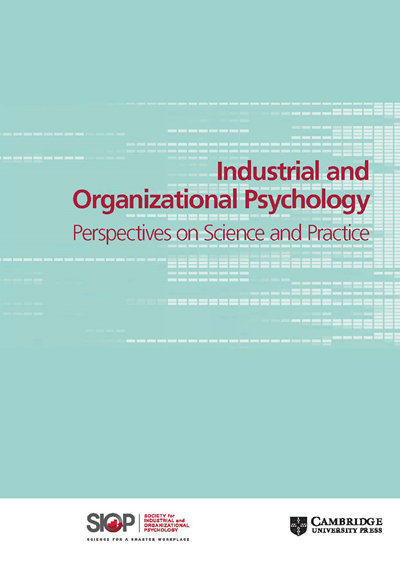育儿假只是披着羊皮的狼:呼吁学术界制定性别意识政策
IF 4.3
3区 心理学
Q1 PSYCHOLOGY, APPLIED
Industrial and Organizational Psychology-Perspectives on Science and Practice
Pub Date : 2023-05-09
DOI:10.1017/iop.2023.8
引用次数: 0
摘要
Gabriel等人(2023)引起了人们对一个经常讨论的问题的关注,即女性在学术界的照顾和终身职位/晋升,而这往往会阻碍另一个人的成功。重要的是,也许这篇重点文章中也提到了,学术界女性在照顾他人方面面临的挑战,是我们最亲密的知己之间的窃窃私语,至少在过去是这样。然而,通过主要由女性主导的学术研究,以及在一些io心理学和管理领域最负盛名的会议上(在专题讨论会和小组讨论中)提高她们的声音,这些问题开始获得关注。虽然我们在很大程度上同意Gabriel等人(2023)的行动呼吁,但我们试图引起人们的注意,并批评他们的论点,即照顾政策(例如,育儿假)是解决学术界女性照顾问题的灵丹妙药。更具体地说,Gabriel等人(2023)正确地指出,在美国,缺乏适当的护理政策,使得系主任/系主任和其他教职员工成为制定变革的盟友,以支持学院的女性护理人员。然而,我们认为政策是可以解决的,也就是说,大学政策是可以制定和改变的,女权主义经济学提供了这样做的途径。我们首先描述了女权主义经济学,然后讨论了不分性别的大学看护政策,挑战了焦点文章中关于育儿假和任期延长对女性成功至关重要的论点。最后,我们总结了在旨在支持护理的大学政策中建立性别意识的步骤,并提出了实际解决方案的建议。重要的是,我们挑战Gabriel等人(2023年)的行动呼吁:大学必须制定和/或改变其政策,以提高性别意识,以支持女性护理人员的进步本文章由计算机程序翻译,如有差异,请以英文原文为准。
Parental leave is just a wolf in sheep’s clothing: A call for gender-aware policies in academia
Gabriel et al. (2023) bring attention to an oft-discussed issue, women’s caregiving and tenure/ promotion in academia, and that one often precludes the other from success. Importantly and perhaps alluded to in the focal article, the challenge of caregiving for women in academia are conversations held in whispers and among our closest confidants, at least in the past. However, through largely women-led scholarship and raising their voices (in symposia and panel discussions) at some of our most prestigious conferences in the I-O psychology and management fields, these issues are starting to gain traction. While we largely agree with Gabriel et al.’s (2023) call to action, we seek to draw attention to, and critique, their argument that caregiving policies (e.g., parental leave) are a panacea for addressing women’s caregiving in academia. More specifically, Gabriel et al. (2023) correctly note that in the United States, an absence of appropriate caregiving policies places department chairs/ heads and other faculty members as allies in enacting change to support women caregivers in the academy. However, we contend that policy can be addressed, that is university policies can be enacted and changed, and feminist economics offers an avenue with which to do so. We first describe feminist economics, and we then discuss university caregiving policies as gender-blind, challenging the arguments in the focal article that parental leave and tenure extension are vital to women’s success. Finally, we conclude with steps for establishing gender awareness in university policies aimed at supporting caregiving, ending with suggestions for practical solutions. Importantly, we challenge Gabriel et al.’s (2023) call to action with the following battle cry: universities must enact and/or change their policies to be gender-aware in order to support the advancement of their women caregivers
求助全文
通过发布文献求助,成功后即可免费获取论文全文。
去求助
来源期刊

Industrial and Organizational Psychology-Perspectives on Science and Practice
PSYCHOLOGY, APPLIED-
CiteScore
7.70
自引率
10.10%
发文量
85
期刊介绍:
Industrial and Organizational Psychology-Perspectives on Science and Practice is a peer-reviewed academic journal published on behalf of the Society for Industrial and Organizational Psychology. The journal focuses on interactive exchanges on topics of importance to the science and practice of the field. It features articles that present new ideas or different takes on existing ideas, stimulating dialogue about important issues in the field. Additionally, the journal is indexed and abstracted in Clarivate Analytics SSCI, Clarivate Analytics Web of Science, European Reference Index for the Humanities and Social Sciences (ERIH PLUS), ProQuest, PsycINFO, and Scopus.
 求助内容:
求助内容: 应助结果提醒方式:
应助结果提醒方式:


